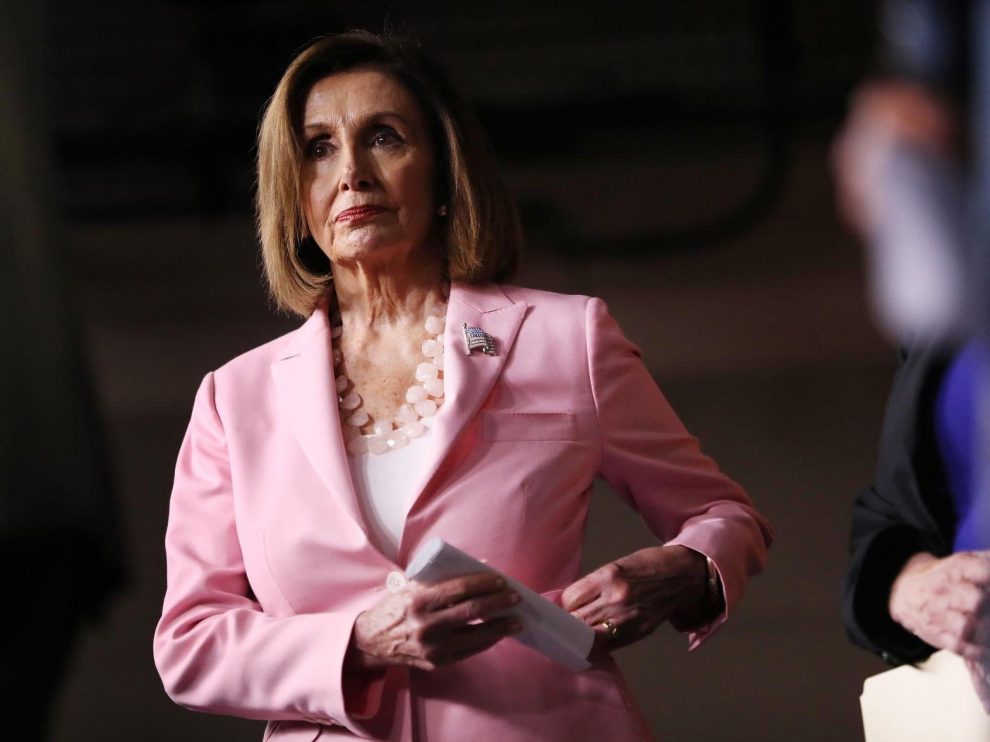Stung by their party’s disappointing showing at the polls Tuesday, two moderate House Democrats say they and other centrists are privately discussing a plan that was unthinkable just 24 hours earlier: throwing their support behind a challenger to Speaker Nancy Pelosi (D-Calif.).
The two Democrats told The Hill on Wednesday that they were reaching out to their colleagues about backing one of Pelosi’s top lieutenants, House Democratic Caucus Chairman Hakeem Jeffries (N.Y.), for Speaker.
“He’s the only one prepared and positioned” to be Speaker, said one of the Democratic lawmakers. “He bridges moderates and progressives better than anyone. And most importantly, he’s not Nancy Pelosi.”
The grumbling reflects a remarkable shift in internal Democratic thinking in the immediate wake of Tuesday’s elections. Pelosi and Democratic leaders had promised to build on their majority — some estimates were in the double digits — but the early returns revealed a different reality: Not only did they fail to protect a number of their most vulnerable members, they had not picked off a single Republican incumbent heading into Wednesday afternoon.
Instead, lawmakers were left licking their wounds and questioning the messaging and strategy decisions heading into Tuesday’s polls.
Pelosi has become an early target for moderates representing suburban districts worried that their leadership’s strategy hurt such members ahead of the elections.
One of the two lawmakers who spoke to The Hill said a number of Democrats representing suburban and exurban districts had been talking about the need for a change.
“It’s time for Democrats to elevate a new generation of leadership in both the House and the Senate,” the lawmaker said. “Americans are clearly afraid of ‘socialism,’ want safe streets and neighborhoods and to vote for people who they believe will help put more money in their pockets. While Democratic policies can adequately address those issues, our messaging mechanism clearly cannot.”
The pair of Democrats said they were in the process of reaching out to all of the “suburban survivors” of Tuesday night’s elections and had already spoken to two dozen members from various factions of the caucus, including the Congressional Black Caucus, Progressive Caucus, New Democrat Coalition and bipartisan Problem Solvers Caucus.
A spokesperson for Jeffries urged patience as the outstanding results come in and emphasized that the Democratic caucus chairman is seeking another term in that spot.
“As we wait for every vote to be counted in the most pivotal election in our lifetime, keeping the House Democratic Caucus unified on behalf of the American people has never been more important,” said the spokesperson. “Representative Jeffries is running to serve a second term as Chairman of the vibrant House Democratic Caucus in the 117th Congress.”
Pelosi told reporters before the elections that she would run for Speaker again if the Democrats kept control of the House.
Asked about a potential challenge to Pelosi, her chief spokesman, Drew Hammill, wrote in an email to The Hill: “Today is not about the race for Speaker. Today is about the race for the White House and ensuring that our Members and candidates in uncalled races have the support they need. That is our focus.”
He had no further comment, but last week Pelosi’s campaign operation showcased her tremendous fundraising prowess. Team Pelosi said she had raised nearly $228 million in the 2020 cycle, including $67 million for Democrats just in the third quarter. And since she joined leadership in 2002, she has raised nearly $1 billion for the party.
While Democrats will keep control of the House, and the results of many races remain unknown while votes are still counted, the party saw the defeat of at least seven of their front-line members — the sitting lawmakers in the toughest districts. And of the 38 “red-to-blue” districts they were eyeing as potential gains, Republicans have already won 21 and are leading in another 14.
Pelosi, 80, is no stranger to leadership challenges. Although she led the Democrats’ House takeover in the 2018 midterm elections, she still faced tough resistance within her own ranks in retaking the gavel after eight years in the minority.
At the time, some moderate Democrats balked at supporting the San Francisco liberal, fearing reprisal in their battleground districts. Others, largely of a younger generation and itching to climb up the leadership ladder, thought it was simply time for Pelosi and her top lieutenants — who have led the party for most of the last two decades — to pass the torch to a fresh crop of leaders.
Still, Pelosi methodically picked up support from her detractors, who failed to field a challenger, and she won accolades from all spectrums of the caucus over the cycle, which included the historic impeachment of President Trump and Congress’s emergency response to the coronavirus pandemic.
Fifteen Democrats bucked Pelosi and voted against her on the House floor after Democrats won back the House two years ago. But she still secured 220 votes that year — two more than what she needed to win the Speaker’s gavel.
Story cited here.
























